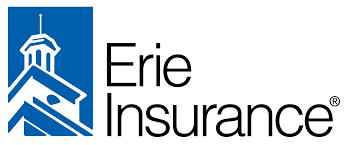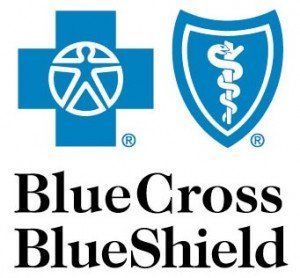INFORMATION ON OTHER TYPES OF INSURANCES
Umbrella Coverage
An umbrella policy offers layers of liability protection. If the liability insurance on your home, car, or another insurance
policy doesn't fully cover you, an umbrella insurance policy will cover you. Umbrella insurance is a sure way to offer you peace of mind and allow you to be fully insured in the event of an emergency.

Motorcycle
Why do you need insurance for your motorcycle?
You'll enjoy being out on the open road even more when you're not worried about the safety of yourself, your passengers or your investment. Here are a few things to consider:
- If you're in an accident or your motorcycle is stolen, it costs money, often a lot of money, to fix or replace it.
- If you or a passenger is injured in an accident, medical costs can be extremely expensive.
- If your motorcycle is responsible for damage or injury to others, you may be sued for much more than you're worth.
- Your motorcycle may be one of your most prized possessions. It deserves special protection.
Your Independent Agent is an advocate for finding insurance that meets your specific needs.
Here are a few things to consider as you prepare for the discussion:
- How much can I afford to pay if my motorcycle is in an accident, damaged or stolen? (Ask your agent what your cost savings would be if you raised your deductible.)
- What discounts and programs are available? (Ask about discounts for taking safety classes or having multiple policies. You may also save money if your motorcycle is stored in a garage or if you belong to a motorcycle association.)
- How much medical and liability coverage should I have?
- Does the insurance company have a good reputation for customer service? Is it known for paying claims fairly and promptly?
- What's the process for filing and settling a claim?
Many factors can play a role in determining what your insurance costs will be such as your age, your driving record, where you live and the type of motorcycle you own, or being a graduate of a rider-training course.
- Many companies offer discounts from 10 to 15 percent on motorcycle insurance for graduates of training courses, such as the Motorcycle Safety Foundation (MSF) rider course. Riders under the age of 25, usually considered a higher risk, may see some savings by taking this course. It's also a good idea for cyclists who have already had accidents.
- Maintaining a good driving record with no violations will also help reduce your premiums.
- In many northern states, riders may save money by buying a "lay-up" policy. With a lay-up policy, all coverage except comprehensive is suspended during winter months.
- Find out what discounts your insurance representative offers. Multibike discounts for those insuring more than one bike, organization discounts, if you're a member of a motorcycle association, and mature rider discounts for experienced riders, are just a few possibilities. Discounts can range anywhere from 10 percent to 20 percent, depending on the company and your state. Availability and qualifications for discounts vary from company to company and state to state.
- Keep in mind that the type, style (such as a sports bike vs. a cruiser) and age of the motorcycle, as well as the number of miles you drive a year and where you store your bike may also affect how much you pay for your premium.
Recreational Vehicles
Recreational vehicles do more than just carry you from one place to another; they transport you with an eye toward maximum fun and/or comfort along the way. Just because some of these vehicles are associated with playtime, that doesn't mean they don't need the same insurance protection as any other piece of expensive property you own. In fact, they may need more insurance since they also create a potential for liabilities.
Liability Insurance for Recreational Vehicles
Your recreational vehicle is, just like an automobile, a moving vehicle that can cause bodily injury and property damage to others. In order to help pay for any damage you inadvertently inflict, you should secure liability insurance. This policy can also help cover the cost of environmental cleanup after an accident that causes the spillage of a toxic chemical or other pollutant.
Liability coverage will have limits that work on both a per-incident and per-policy basis. They may also have a deductible that requires an out-of-pocket contribution for each incident or year.
Property Coverage
After you've considered the potential liabilities you are exposed to while operating a recreational vehicle, it's time to secure coverage for the value of the vehicle itself. Recreational vehicle coverage can include financial compensation in the event of physical damage, vandalism, theft and collision. In addition, your policy may allow for reimbursement of personal effects stored on a vehicle such as an RV, boat or snowmobile.
In some cases, you may want to consider adding specialized coverage for additional risks including the loss or damage of awnings and custom equipment. If you have an RV that you live in part or full time, you may need extended protection so be sure to discuss that with your agent.
Boats & Watercraft
Why do you need insurance for your boat or personal watercraft? You'll enjoy the water even more when you're not worried about the safety of yourself, your passengers or your investment. Here are a few things to consider:
- If you're in an accident or your watercraft is stolen, it costs money, often a lot of money, to fix or replace it.
- If you or any passengers are injured in an accident, medical costs can be extremely expensive.
- If your watercraft is responsible for damage or injury to others, you may be sued for much more than you're worth.
- Your watercraft also needs protection when it's on land. Accidents can happen while towing a watercraft.
Things to consider and questions to ask your agent Here are a few things to consider as you prepare for the discussion:
- How much can you afford to pay if your boat or personal watercraft is in an accident, damaged or stolen?
- Is my boat or watercraft covered for use year-round?
- What discounts and programs are available?
- How much medical insurance and liability coverage is enough?
- Do I have coverage if I need to have my boat towed in an emergency?
- What's the process for filing and settling a claim?
- Does the insurance company have a good reputation for customer service? Is it known for paying claims fairly and promptly?
Home and auto insurance policies may provide limited coverage for personal watercraft. Talk to your insurance representative about coverage limits. You may want to consider purchasing a personal watercraft policy to protect yourself and your water vehicle in the event of an accident. The personal watercraft policy covers:
- bodily injury
- property damage
- guest passenger liability
- medical payments
- theft
Liability limits start at $15,000 and can be increased to $300,000. Typical policies include deductibles of $250 for property damage, $500 for theft and $1,000 for medical payments. Additional coverage can also be purchased for trailers and other accessories. You should talk to your insurance representative about the type of coverage that would best suit your needs.
Snowmobiles
Snowmobiling originated in Wisconsin and hitting the trails is a great activity for you and your family. You want to ensure that you are at least covered for liability, so that if you injure someone else or damage their property, your insurance will cover it. If you have an umbrella policy, you can typically add snowmobiles under that. You can also purchase uninsured or underinsured motorist coverage in the event that someone hits you while you're snowmobiling. You can choose a deductible, typically from $250 to $1000. The higher your deductible is, the lower your rate will be.














